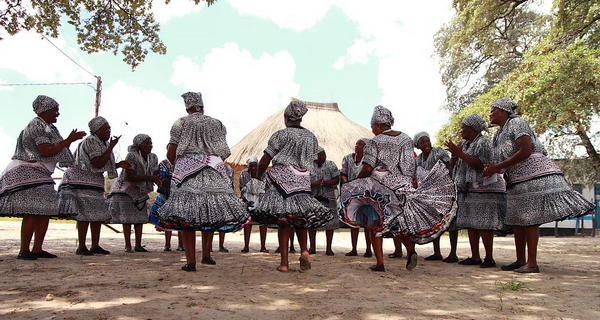Botswana to host 18th session of the Committee next year

The Intergovernmental Committee for the Safeguarding of the Intangible Cultural Heritage Saturday ended its 17th session that took place in in Rabat, Kingdom of Morocco. The session and the side-events brought together over one thousand people who were able to meet in person for the first time since 2019.
During the last day of the session, the Committee decided that its 18th session will be held in Gaborone, Botswana from 4 to 9 December 2023. It will also be a climax for the celebration of the Convention’s 20th anniversary, with festivities taking place throughout the year.
Discover the Committee’s highlights below and ways forward for 2023, and after.
Thematic initiatives:
The Committee reaffirmed the important role of intangible cultural heritage for an inclusive social, economic and environmental development, following the development of thematic initiatives by the Secretariat. Guidance notes will orient the efforts of States and communities in the three areas tackled in the global survey: ‘Economic dimensions of safeguarding intangible cultural heritage’, ‘Safeguarding intangible cultural heritage in urban contexts’, and ‘Safeguarding intangible cultural heritage and climate change’.
Broadening the implementation of Article 18:
Furthermore, the Committee has requested that the Secretariat convene the Category VI meeting of experts in the first half of 2023 with a view to laying the ground for the Open-ended intergovernmental working group to be convened in the second half of 2023. The initiative on the reflection on the broader implementation of Article 18 of the 2003 Convention is kindly supported by the Kingdom of Sweden.
Reports:
The several reports presented to the Committee showed the positive impact of the inscription on the Lists and the success of the safeguarding projects. The increasing submission rates of periodic reports in the Latin America and the Caribbean (LAC) and Europe regions where the reformed system applied demonstrates the effectiveness of such reporting system.
Capacity-building programme:
The capacity-building Programme, which to date has provided support to 90 member states, is now moving towards a hybrid modality for its implementation. One example is the recently developed MOOC on living heritage and sustainable development which has already registered over 3,500 participants.
Furthermore, the Living Heritage and Education Programme is building its momentum through intensified intersectoral collaboration for the development of a UNESCO framework on culture and arts education. This initiative was highlighted in the Final Declaration adopted during MONDIACULT in Mexico.
To read all the decisions adopted, visit the dedicated webpage.

Address: 81, Laiguangying West Road, Chaoyang District, Beijing, China
Zip Code: 100021
Tel: 86-10-64966526
Fax: 86-10-64969281
E-mail: crihap@crihap.cn
Leave us your e-mail address, we'll let you know about current events.



